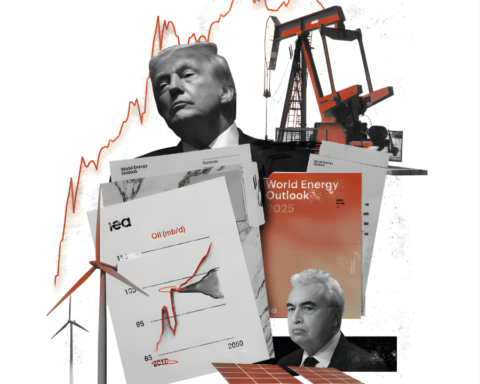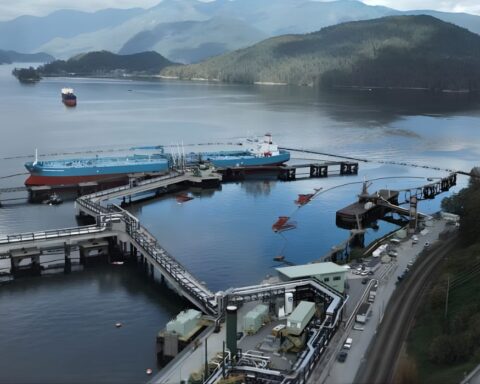Private investors in rich countries stand to lose more than a trillion dollars on stranded fossil fuel assets as climate policies slash their value, giving them a powerful interest in the transition off carbon, according to new research published in the journal Nature Climate Change.
Led by economist Gregor Semieniuk of the University of Massachusetts Amherst, researchers found that assets worth US$1.4 trillion in the oil and gas sector would lose their value globally. “Most of the market risk falls on private investors,” they add, overwhelmingly in Organisation for Economic Cooperation and Development (OECD) countries like Canada, with substantial exposure through investment funds, shareholdings, and pensions.
“The ownership distribution reveals an international net transfer of more than 15% of global stranded asset risk to OECD-based investors,” the researchers warn. “Rich country stakeholders therefore have a major stake in how the transition in oil and gas production is managed, as ongoing supporters of the fossil fuel economy and potentially exposed owners of stranded assets.”
While stranded assets are a normal consequence of “dynamic, capitalist economies,” the paper adds, they become a social concern when they destabilize financial markets with repercussions in the real economy, “such as on pensions and government finances.”
Stranded assets occur as the profitability of old products and industries falls below expectations—either because of disruptive policies, or when they are replaced by new technologies. They don’t usually indicate a systemic financial risk, since the emerging assets are able to buoy the overall financial sector. However, new climate policies aiming to limit global heating to 2°C call for a rate of industrial change that is dramatic enough to cause a rapid collapse of fossil fuel industries and “presents major transition risks.”
To better understand how this risk is distributed worldwide, the researchers calculated the expected profits from global fossil fuel assets and traced the possible losses from those assets. They calculated the losses from changing fossil fuel demand expectations using the shift from an expected baseline scenario to a revised scenario that represents updated expectations resulting from climate policies.
Losses were traced through four stages of entities that would be affected, moving from Stage 1 losses at the oil and gas field locations, to Stage 2 losses at headquarters, to Stage 3 corporate owner losses, and finally Stage 4 losses to the ultimate owners, including “governments and individuals, as shareholders or outright owners of companies or investors in funds, including pension funds.”
Of the US$1.4 trillion in stranded assets world-wide, the researchers found that physical stranded assets in OECD countries accounted for a total US$552 billion, or 39.2%. Stage 2 losses—on balance sheets of OECD-headquartered oil and gas companies—rose to US$728 billion, or 51.7%, because the companies own or have a claim on profits from production assets across the globe. Financial investments of OECD-based companies in oil and gas companies brought the share of losses to 57.1% for ultimate corporate owners in OECD countries. In Stage 4, 1.6% of losses were redistributed back to non-OECD countries, mainly through non-OECD clients of OECD-based asset managers.
The large exposure of pension funds will be a major concern, even if “outright financial instability is avoided,” the researchers warn.
“In all circumstances, the political implications of loss allocations at each stage are likely to be major,” they conclude, underscoring the need for international cooperation toward a stable phaseout of fossil fuels.
Christopher Bonasia is a staff writer at The Energy Mix and has several years’ experience sustainably raising livestock.
This article was first published in The Energy Mix.







